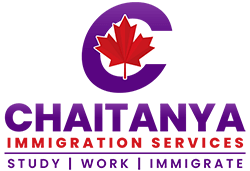In Canada, university education is considered a provincial responsibility, with their degree structures being approved by provincial Ministries of Education. The education system is a hybrid between the British and US system, and is predominantly a public system with a few private degree-granting options. Canadian universities are generally larger and more comprehensive, with enrollment numbers of more than 15,000 students.
THE DIFFERENT TYPE OF UNIVERSITIES IN CANADA
Most universities in Canada are publicly funded through the provincial governments of Canada. However, there are also a number of private institutions and liberal arts colleges. It’s also worth noting that Canada has a host of vocational institutions – for example colleges and polytechnics
PRIVATE UNIVERSITIES
A private university generally does not receive funding from the provincial, territorial or federal governments, instead receiving private funding through donations from wealthy alumni and faculty research grants as well as traditional tuition fees.
Private universities often attract and retain the very best staff possessing esteemed reputations in their respective fields.
Examples of private universities in Canada:
University Canada West, Crandall University
Cost of studying in Canada
Cost is a key factor when choosing and planning for your university experience.
Average costs per year
Total: $33k-$45k (all amounts are in CAD)
(*Tuition varies by program and institution: $11-65k for international students)
Application Requirements for Canadian Universities
There are documents that need you need to submit to the university you are trying to apply to. Most of these will have to be uploaded to an application portal.
1. Minimum Education Equivalence or Marks:
If you are applying from India, you need to have completed a total of 16 years of education before your masters in Canada. If you did a three-year undergrad, you may have to take up a 1-year Post-grad diploma from India before applying. One may also find a list of Canadian Universities that accept three-year grad.
2. University Transcripts:
If you have finished your degree, you can request your college to offer you a transcript of your degree that includes your overall performance, your marks, your curriculum, etc. You should get the form and all the relevant information from your college admin office. In case you haven’t finished your final exams, you will be given an interim transcript for your foreign university application. However, if you get an admit, you will have to submit the final transcripts.
3. Copy of your university degree:
If you have been given one. If not, then any proof that you have graduated is acceptable. If you’re in your penultimate year of study, you need not worry about this. However, it is good to mention that somewhere in your profile.
4. English Language Requirements:
One may appear for TOEFL or IELTS but without any doubt, IELTS is the most preferred English language proficiency test in Canadian Universities. The score should be a minimum of 6.5 overall IELTS band with at least 6 minimum bands in each. The higher, the better. Similarly, for TOEFL, the general criteria is at least 90 overall, with minimum 20 in each section.
5. Statement of Purpose, CV and Letters of Recommendation:
These documents play an important role your university application process. Refer our SOP writing tips for information on how to write a good SOP and how to draft LOR.
6. GRE or GMAT:
You may wonder- Is GRE required for Canadian universities? Well, if you are applying for MS in Engineering in Canada and aiming for one of the top universities, then you may most likely have to submit a good GRE score. For MBA, you give GMAT. There is no expected score mentioned by any university but some university course pages give you an average of the scores of previous years’ applicants. You may refer to those.
These are just the most basic requirements. Different courses have different requirements and they’re all mentioned on their respective course pages. You should definitely do a lot of research on your courses and universities before applying, and this includes making note of all the requirements needed at the time of application.
- 218 Export Blvd. Suite 212, Mississauga ON L5S0A7

